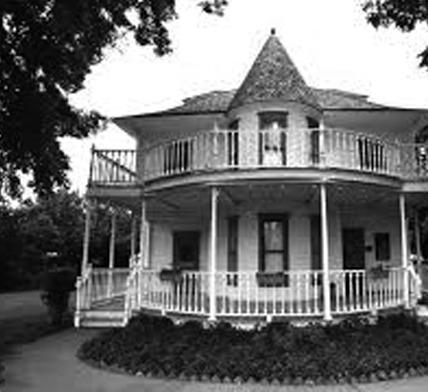TB Ferguson as U.S. Postmaster One of the institutions of these United State for which I have a high regard is the United States Postal System. I was happy to see that our U.S. Post Office, which is one of six buildings in Watonga on the National Registry of Historic Places, received a good paint job this year. It is our sincere hope that the TB and Elva Ferguson Mansion (Museum) will receive a needed painting as well as other critical maintenance. If you can help, contact Connie Burcham, President of Friends of the Ferguson. Two $10,000 matching grants are on the table, so your contribution is doubled.
About the only political plum to be given out to the party newspapers at the time of the territory were jobs as the postmaster and it was the policy of the national administration to distribute these jobs to newspaper editors. Watonga was no exception to this and the editor of the Republican in 1896 was appointed postmaster. It was a fourth-class post office, and his salary was based upon the cancellation of stamps, not a very lucrative job but it helped during the lean years of the country weekly. The post office was in the same building as the paper and was taken care of by the editor’s family, giving him time for the newspaper and politics. However, after serving as postmaster for a couple of years, he resigned, because he felt that holding a federal office, though small it was, interfered with his political activities.
At this time there was considerable horse stealing going on in this part of the territory, probably because horses were about the only thing the settlers had worth stealing. Many of the Indians had lost their ponies via the horse thief route. They were bewildered by the fact that white men were committing these thefts and did not know how to find protection. White Antelope, an Arapahoe, owned a beautiful white pony and was in constant fear that it would be stolen. A sign in front of the Republican office, U.S. Post Office” caught his attention and he always tied his pony there. He would patiently wait until the post was vacant. Out of curiosity, someone in the office asked him why he always tied his pony under the sign. The old Indian with words and signs explained “Uncle Sam he own hitch post, no white man steal pony from Uncle Sam”. In his mind, he believed the U.S. stood for Uncle Sam and he had faith in that name.
P45-46 of “They Carried the Torch: The Story of Oklahoma’s Pioneer Newspapers by Mrs. Tom B. Ferguson. Levite of Apache, 1989, reprinted from the 1937 original.

